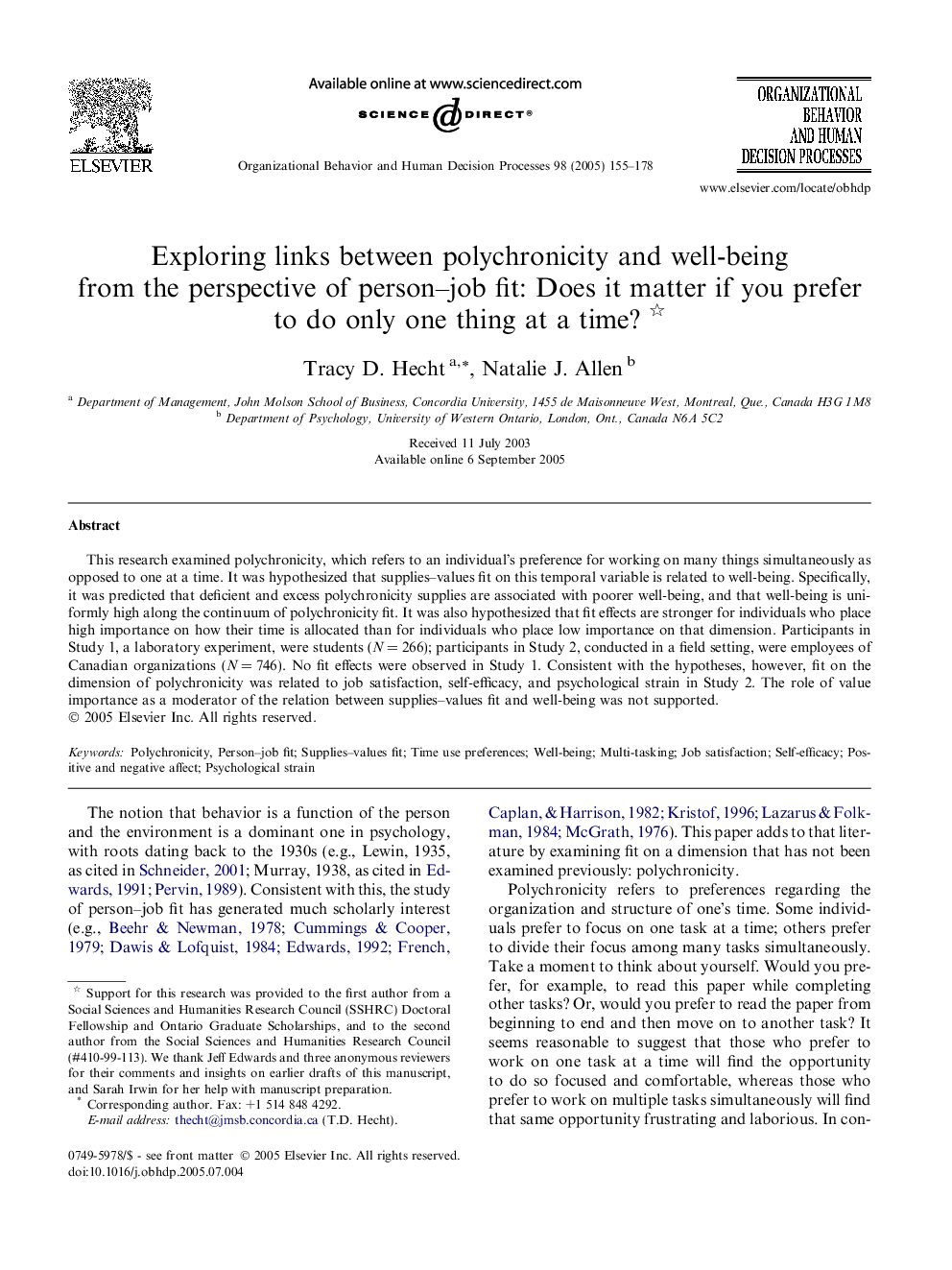| Article ID | Journal | Published Year | Pages | File Type |
|---|---|---|---|---|
| 10439881 | Organizational Behavior and Human Decision Processes | 2005 | 24 Pages |
Abstract
This research examined polychronicity, which refers to an individual's preference for working on many things simultaneously as opposed to one at a time. It was hypothesized that supplies-values fit on this temporal variable is related to well-being. Specifically, it was predicted that deficient and excess polychronicity supplies are associated with poorer well-being, and that well-being is uniformly high along the continuum of polychronicity fit. It was also hypothesized that fit effects are stronger for individuals who place high importance on how their time is allocated than for individuals who place low importance on that dimension. Participants in Study 1, a laboratory experiment, were students (NÂ =Â 266); participants in Study 2, conducted in a field setting, were employees of Canadian organizations (NÂ =Â 746). No fit effects were observed in Study 1. Consistent with the hypotheses, however, fit on the dimension of polychronicity was related to job satisfaction, self-efficacy, and psychological strain in Study 2. The role of value importance as a moderator of the relation between supplies-values fit and well-being was not supported.
Keywords
Related Topics
Social Sciences and Humanities
Business, Management and Accounting
Marketing
Authors
Tracy D. Hecht, Natalie J. Allen,
